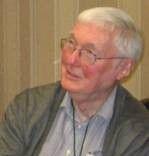Current Research Interests
Production and consumption of geography knowledge
Geographies of silences, politics, religion, and art-science intersections
World and regional city networks, rural and isolated areas/populations
Geographies of stamps: production, images, new states and maps
Geographies of empowerment and emotions (all emotions have a place/geographic connection)
Stan Brunn labels himself as a cosmopolitan Middle Westerner after being raised in small towns and rural areas in a half-dozen states. He taught previously at the University of Florida and Michigan State University. He joined the University of Kentucky department in 1980 as chair and served in that capacity from 1980-88. He was appointed by the governor as State Geographer from 1988-89. His teaching and research interests span more than five decades and include political, social and urban geography, the geographies of information and communication, time-space geographies, geographies of the future, and innovative cartographies. When teaching he offered seminars on technological hazards, cyberspace, futures, humane geographies, peace and reconciliation.
Stan’s research interests are vast and include a number of single and multiple articles, chapters. Articles have appeared in the past fifty years in many national and international geography and interdisciplinary journals. His books include Geography and Politics in America; The American Metropolitan System; Geography of Laws and the Administration of Justice; Cities of the World (seven editions); Human Spatial Behavior; Engineering Earth: The Impacts of Megaengineering Projects; Political Geography of the United States; Worlds of E-Commerce: Economic, Geographical and Social; Wal-Mart Worlds; 11 September and the Aftermath; The Geopolitics of Terror; Technological Hazards Geography and Technology; Atlas of the 2008 Elections; and Atlas of Central Eurasia. In the past decade he has edited and co-edited volumes on Mapping Across Academic; The Changing World Religion Map; Handbook of the Changing World Language Map; COVID-19 and a World of Ad Hoc Geographies; and Stamps, Nationalism and Political Transition. He is currently editing a book on Time Journeys which explores the concept in different contexts with contributors from all continents and many disciplines. Following that he plans to edit a book on Parallel Universes.
His interests in time, place, territory and space at local and global scales is reflected in articles and chapters dealing with national anthems, art and place, the geographies of silence, the unevenness in geographic knowledge about places, philatelic tourism, feminist philately, isolation and inaccessibility, the changing geographies of rural areas, scholarly networks, innovative cartographies, and disciplinary history.
He has traveled in all continents, except Antarctica, and in more than one hundred countries. He has taught in more than two dozen countries, all over Europe (east, west, north and south) and also in Central Asia, China, Australia, South Africa and on cruise ships in Central America and southern South America. He has also served as an election observer in Kazakhstan and Tajikistan. Many of these teaching experiences have resulted in co-authoring articles and chapters with junior and senior scholars from multiple countries.
In the past nearly six decades he has made over 150 presentations at multiple international and national conferences around the world. He has also been active in the American Association of Geographers serving previously as editor of both The Professional Geographer and Annals, American Association of Geography. He received AAG Honors in 1994, a NCGE Award in 2004, and in 2006 the Lifetime Achievement Award from the Southeast Division, AAG. He has also served on multiple IGU, NCGE and AAG committees, including co-chair of t the AAG Centennial Coordinating Committee and the AAG Archive Committee. When teaching at the he worked with College of Education professors and with school teachers in the state to improve the quality and content of geography instruction in the state’s schools. Among the many highlights of his career. Aside from extensive international and national trave, was his appearance on the NC Today Show in 1971 to discuss his proposed political reorganization of the US. He also has the Brunn Creativity Award in his honor which is awarded annually to deserving AAG members. Also, he was one of the co-founders of the Central Kentucky Council for Peace and Justice, an umbrella interfaith community dedicated to improving fairness and human progress for all.
Among his hobbies are collecting creative maps and landscape paintings, studying futuristic and endangered geographies, singing in a church choir, reading exploratory by known and unknown authors, leading book discussions, learning other languages, extending his global network of friends, mentoring young geographers and others of all ages living outside the U.S., and writing weekly poems on social justice, environment, politics and humor that are sent to more than 500 around the world.
In retirement, Professor Brunn continues to be engaged in promoting geography and geographies whenever called to do so. He defines retirement as a time/space to do you wanted to do in pre-retirement years. He maintains there is much more geography we do not know that what we know! Re-learning is a lifetime growth experience with geographies and a global network of friends playing major roles in those experiences.

